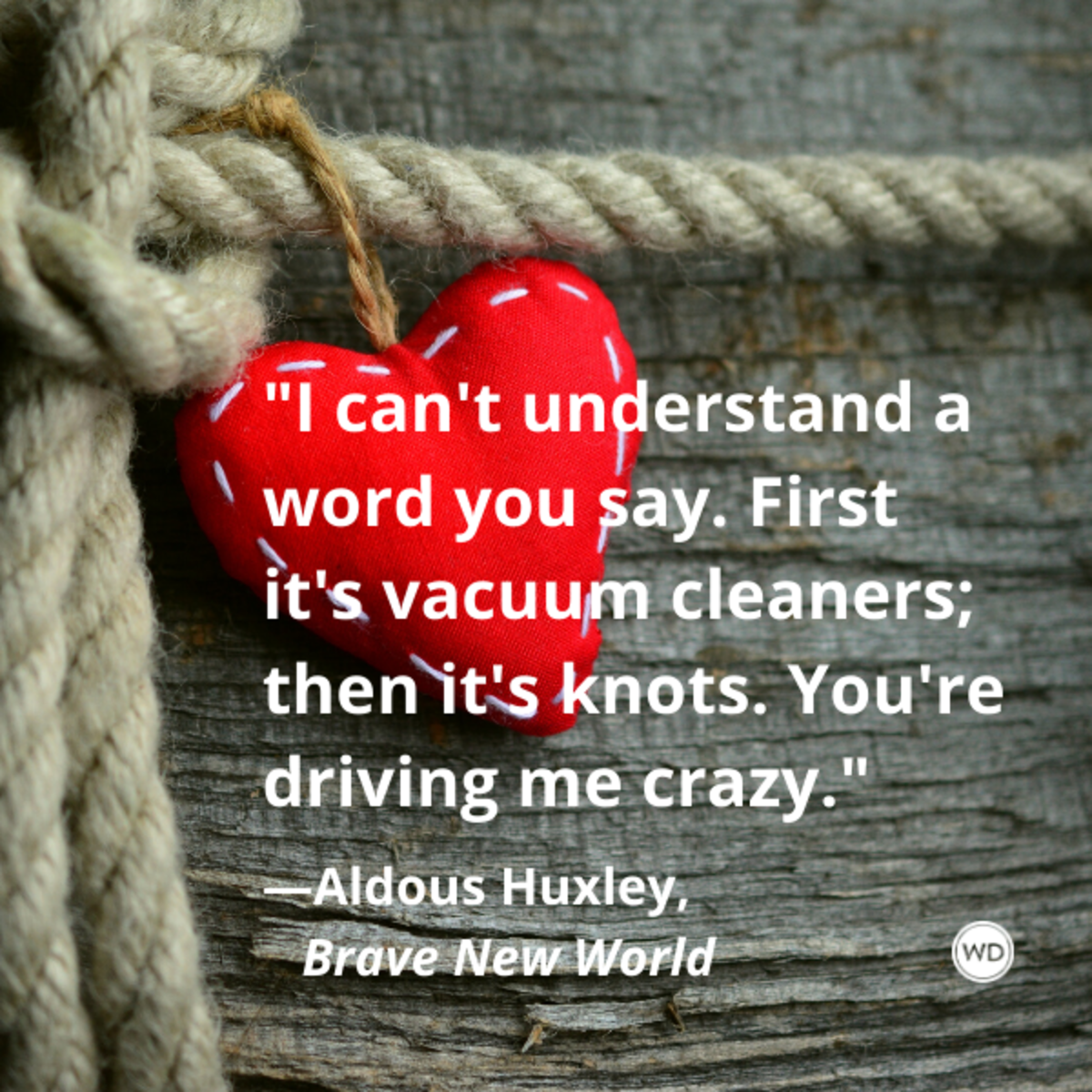

In the passing from one extreme to the other, there would be a long interval, so I imagined, during which the more fortunate third of the human race would make the best of both worlds-the disorderly world of liberalism and the much too orderly Brave New World where perfect efficiency left no room for freedom or personal initiative. Ours was a nightmare of too little order theirs, in the seventh century A.F., of too much. “In 1931, when Brave New World was being written, I was convinced that there was still plenty of time… Covering topics like overpopulation, propaganda, and drugs, this collection of essays became Brave New World Revisited!

#Brave new world quotes about society series#
These thoughts resulted in a series of essays highlighting many of society’s problems and potential solutions as he saw them. Fast forward to 1958 and he was shocked by how quickly society was moving towards his predictions. All other enquiries are most sedulously discouraged." (16.When Huxley wrote Brave New World in 1931, he set his sci-fi dystopia over 600 years in the future. We don't allow it to deal with any but the most immediate problems of the moment. That's why we so carefully limit the scope of its researches. But we can't allow science to undo its own good work. It has given us the stablest equilibrium in history. But truth's a menace, science is a public danger. A much harder master, if one isn't conditioned to accept it unquestioningly, than truth." I'm interested in truth, I like science. Happiness is a hard master -particularly other people's happiness. I chose this and let the science go." After a little silence, "Sometimes," he added, "I rather regret the science.

"I was given the choice: to be sent to an island, where I could have got on with my pure science, or to be taken on to the Controllers' Council with the prospect of succeeding in due course to an actual Controllership. "Because, finally, I preferred this," the Controller answered. He picked up his pen again, and under the words "Not to be published" drew a second line, thicker and blacker than the first then sighed, "What fun it would be," he thought, "if one didn't have to think about happiness!" (12.39) But not, in the present circumstance, admissible. Which was, the Controller reflected, quite possibly true. It was the sort of idea that might easily decondition the more unsettled minds among the higher castes -make them lose their faith in happiness as the Sovereign Good and take to believing, instead, that the goal was somewhere beyond, somewhere outside the present human sphere, that the purpose of life was not the maintenance of well-being, but some intensification and refining of consciousness, some enlargement of knowledge. But once you began admitting explanations in terms of purpose -well, you didn't know what the result might be. Helena may become necessary." A pity, he thought, as he signed his name. His transference to the Marine Biological Station of St. "The author will be kept under supervision. Not to be published." He underlined the words. He sat for some time, meditatively frowning, then picked up his pen and wrote across the title-page: "The author's mathematical treatment of the conception of purpose is novel and highly ingenious, but heretical and, so far as the present social order is concerned, dangerous and potentially subversive. "A New Theory of Biology" was the title of the paper which Mustapha Mond had just finished reading. Thirty or forty bars -and then, against this instrumental background, a much more than human voice began to warble now throaty, now from the head, now hollow as a flute, now charged with yearning harmonics, it effortlessly passed from Gaspard's Forster's low record on the very frontiers of musical tone to a trilled bat-note high above the highest C to which (in 1770, at the Ducal opera of Parma, and to the astonishment of Mozart) Lucrezia Ajugari, alone of all the singers in history, once piercingly gave utterance. It was a trio for hyper-violin, super-cello and oboe-surrogate that now filled the air with its agreeable languor. In the synthetic music machine the sound-track roll began to unwind. The final blast of thyme died away there was a round of applause the lights went up. The scent organ was playing a delightfully refreshing Herbal Capriccio -rippling arpeggios of thyme and lavender, of rosemary, basil, myrtle, tarragon a series of daring modulations through the spice keys into ambergris and a slow return through sandalwood, camphor, cedar and newmown hay (with occasional subtle touches of discord -a whiff of kidney pudding, the faintest suspicion of pig's dung) back to the simple aromatics with which the piece began.


 0 kommentar(er)
0 kommentar(er)
